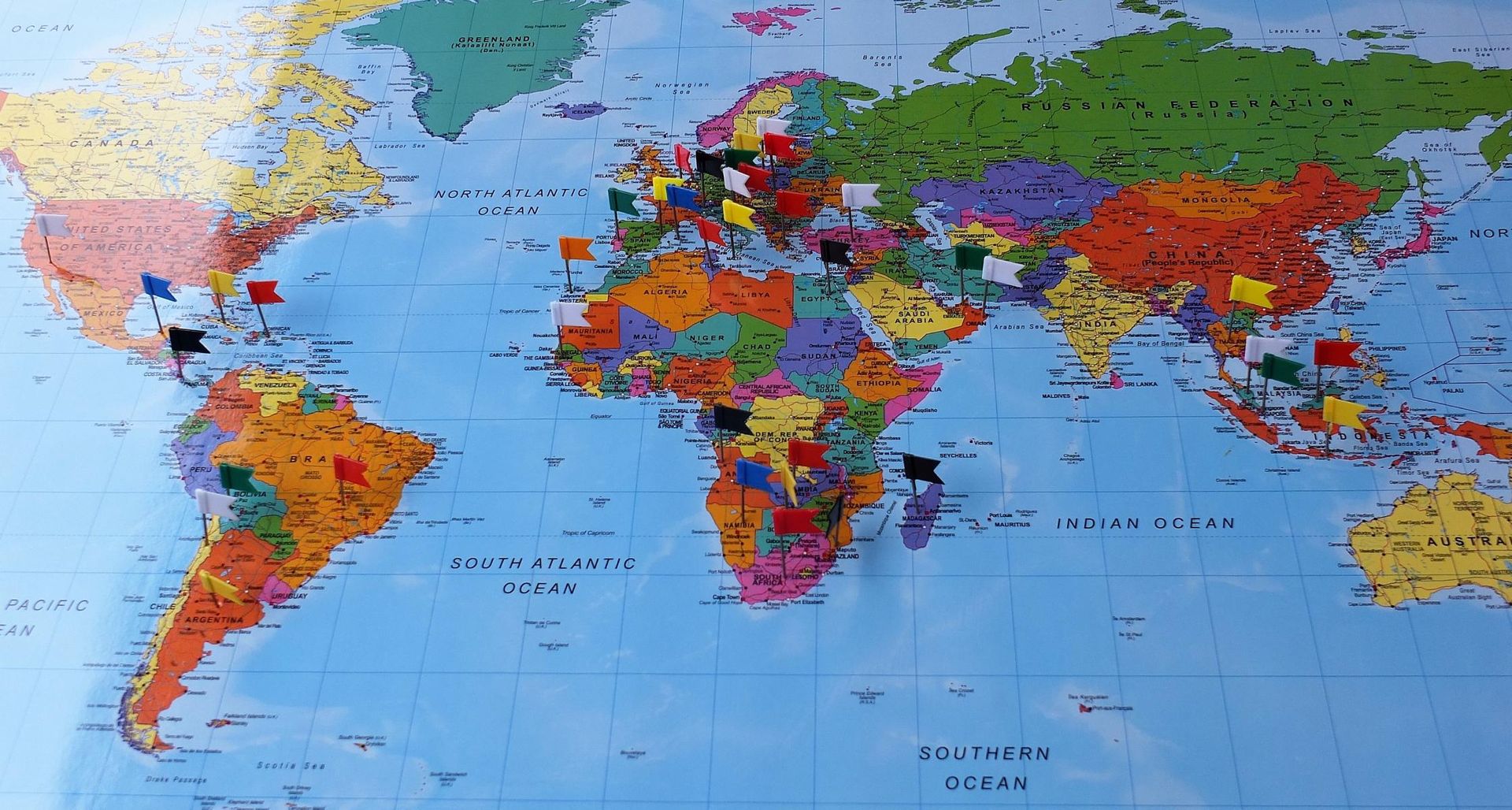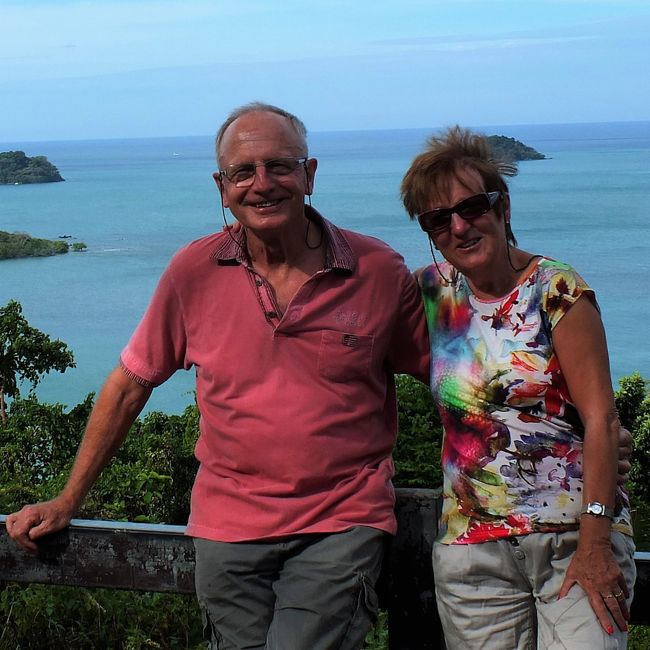The Karijini National Park
પ્રકાશિત: 04.11.2018
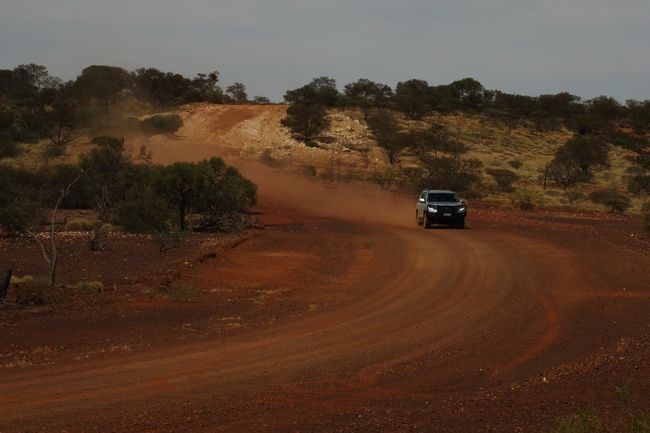
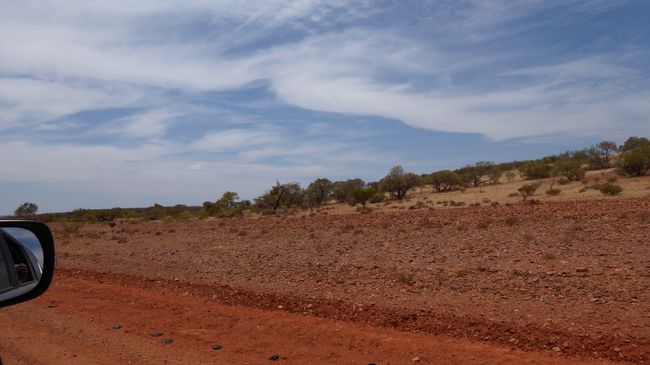
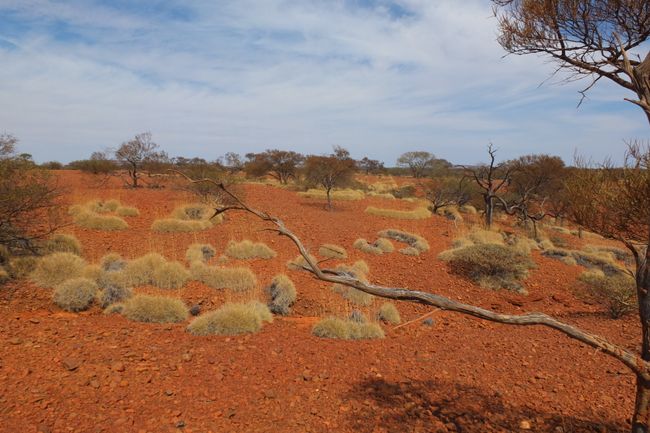
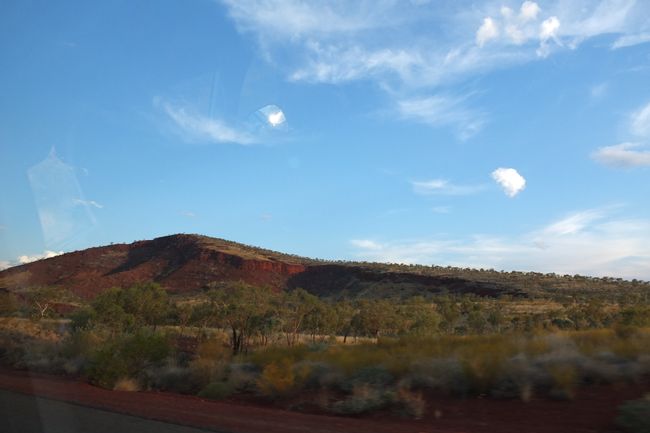
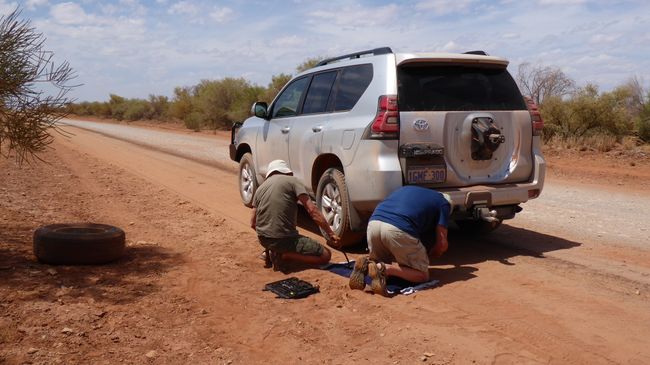
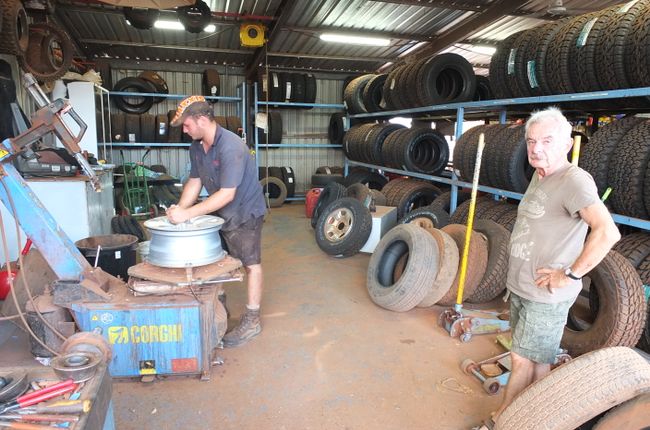
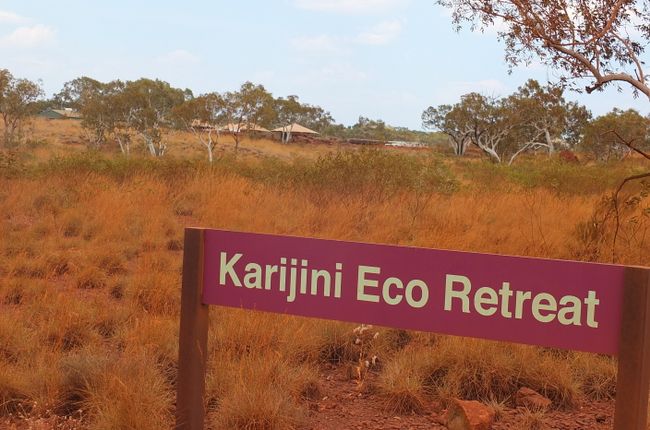
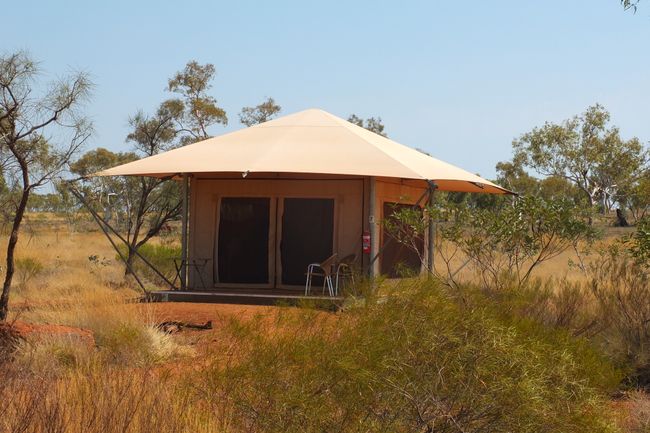
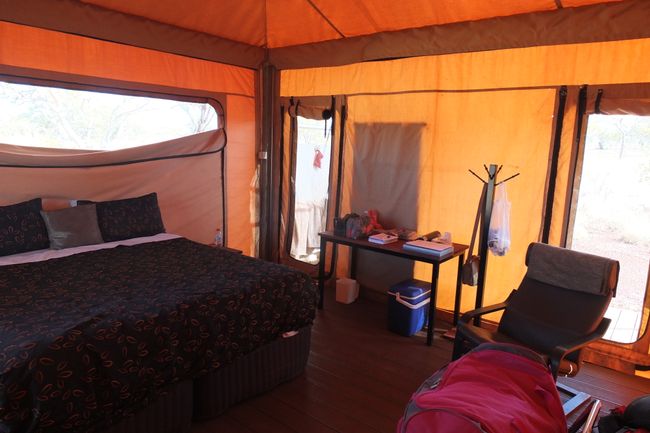
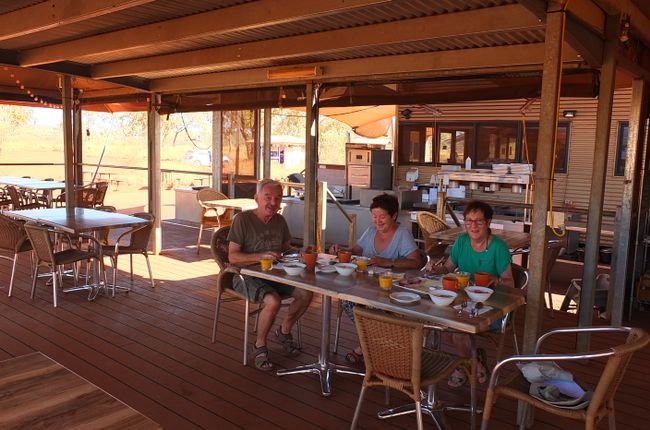
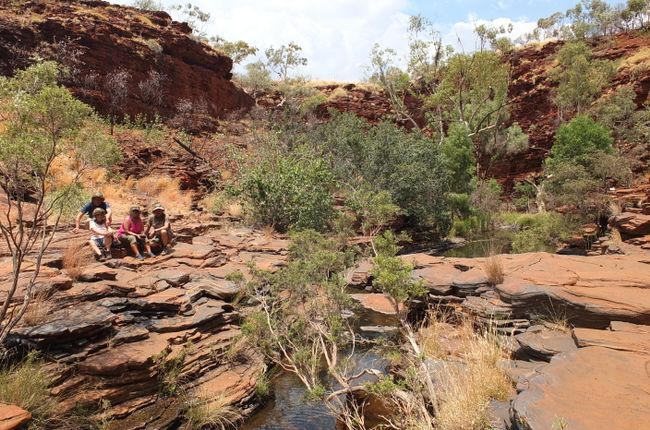
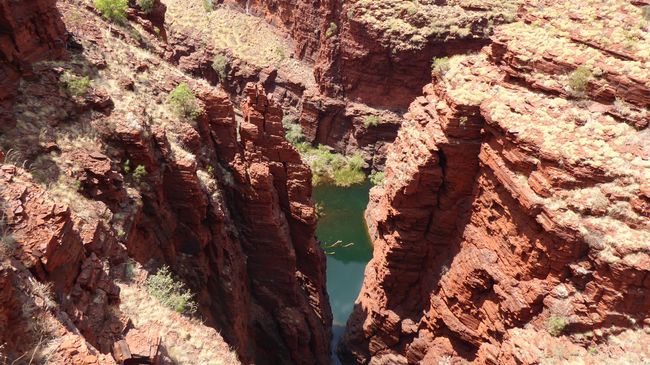
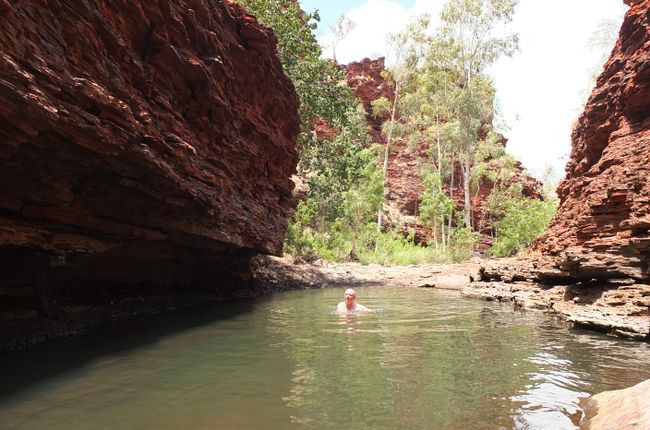
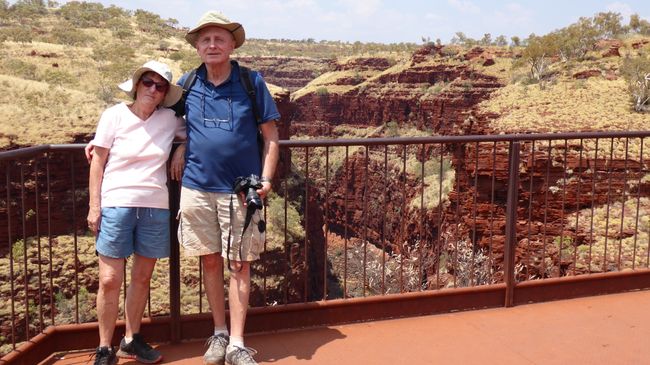
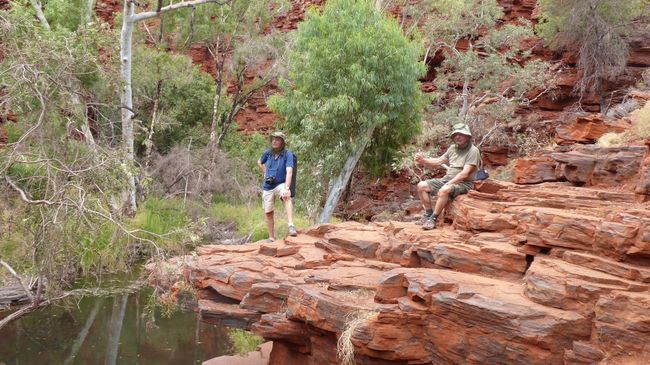
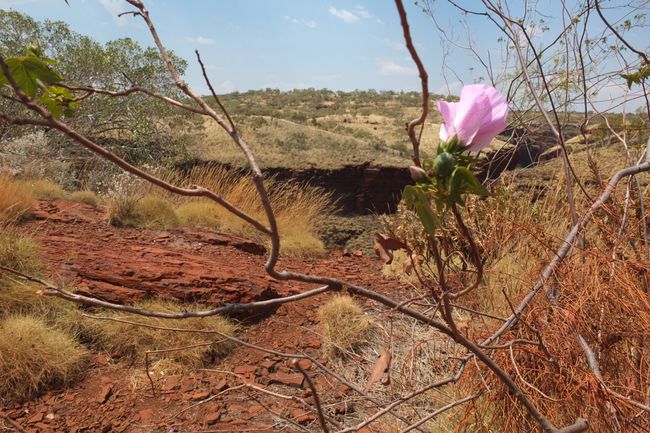
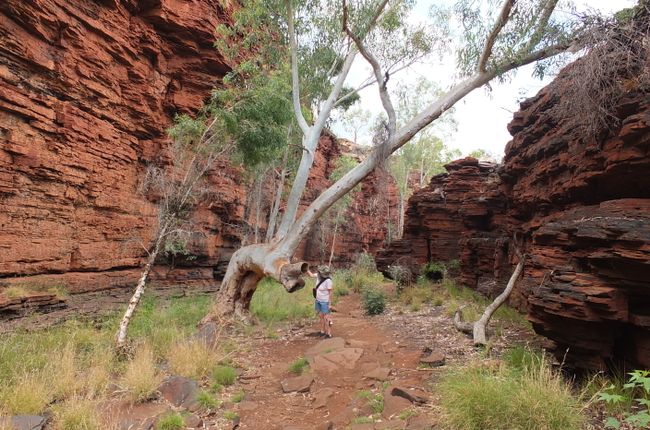
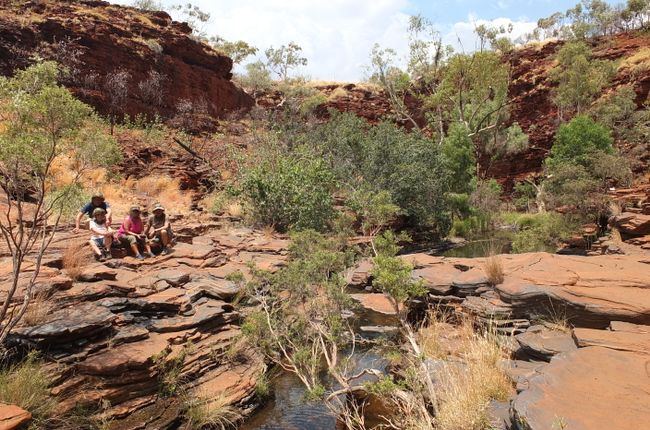
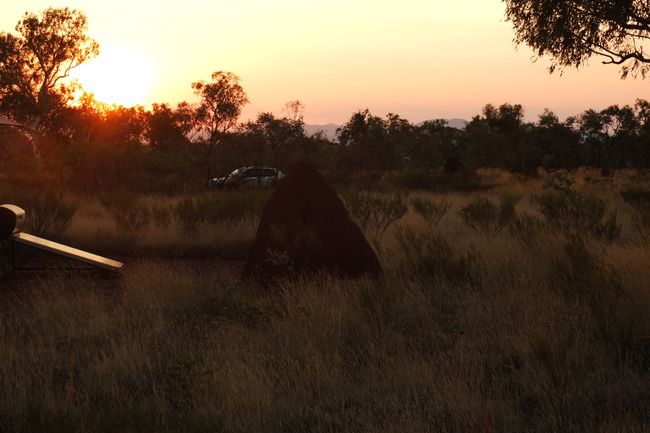
ન્યૂઝલેટર પર સબ્સ્ક્રાઇબ કરો
The journey is the destination

Today we have a 500 km long drive, mostly on gravel road, ahead of us. A whole section is said to be particularly bad. There is no opportunity to refuel for the next 430 km, but our Toyota is full of diesel and we are fully relaxed about it. It is the worst track so far, and many curves and depressions caused by dry riverbeds slow us down additionally. Günther strictly adheres to the maximum recommended speed of 80 km/h by the locals, as we are constantly worried about the patched tires. He handles everything safely and is the perfect Outback driver.

The landscape doesn't offer anything new at first, but it changes from time to time. From fresh green and circularly grown grass bushes to barren and dry. Some wild flowers are still blooming. The earth is mostly deep reddish brown, occasionally whitish gray. The flatness later gives way to a hilly to mountainous area - we reach the Pilbara region.

We are alone on the road again. Only once an emu runs ahead of our vehicle before disappearing into nowhere. The first car comes towards us after 4 hours. A cattle farm lies lonely on our way. Then more and more tracks with their iron ore mining are coming towards us in the Pilbara.

Near Ashburton Downs, something happens during our lunch break that we had not hoped for - the third flat tire, again on the back wheel. This time our men have to deal with it alone. Günther and Gerhard change the tire at 38°C. There is no way around it. The well-rehearsed driving team handles the situation perfectly (no patching, just changing the spare tire). After half an hour we can continue. Now Gerhard takes the wheel for the second half of the drive. But now we don't have a spare tire anymore and can only pray that we don't have another breakdown. Everything goes well until Tom Price and our first destination is a tire workshop. It is quickly found, the damage assessed, and a brand new tire for the spare wheel purchased and mounted. The money will be refunded by Sunny Cars at home, as tire damage is covered by our rental agreement. Now we have to continue quickly to Karijini National Park to be in the camp before it gets dark.
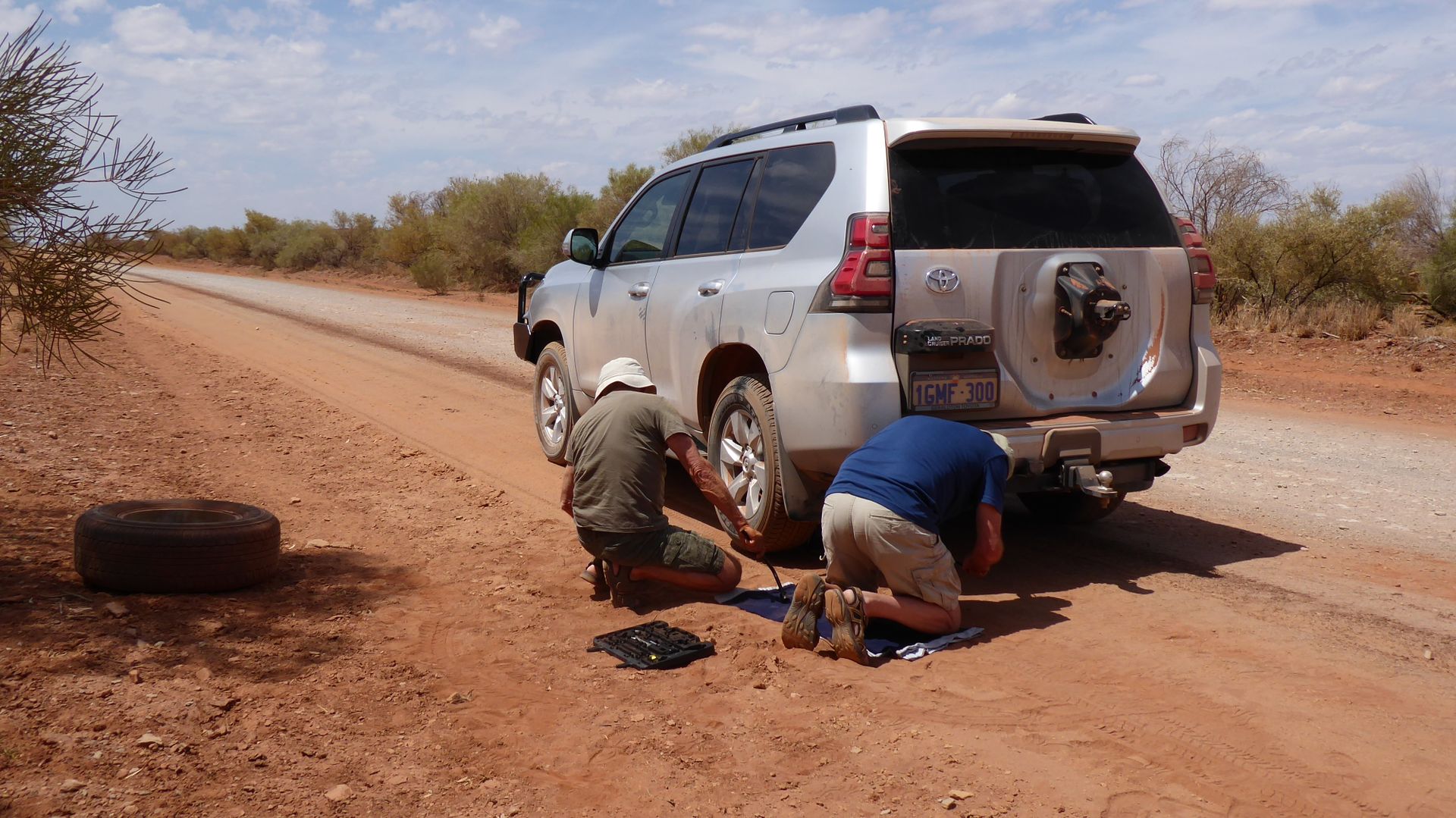
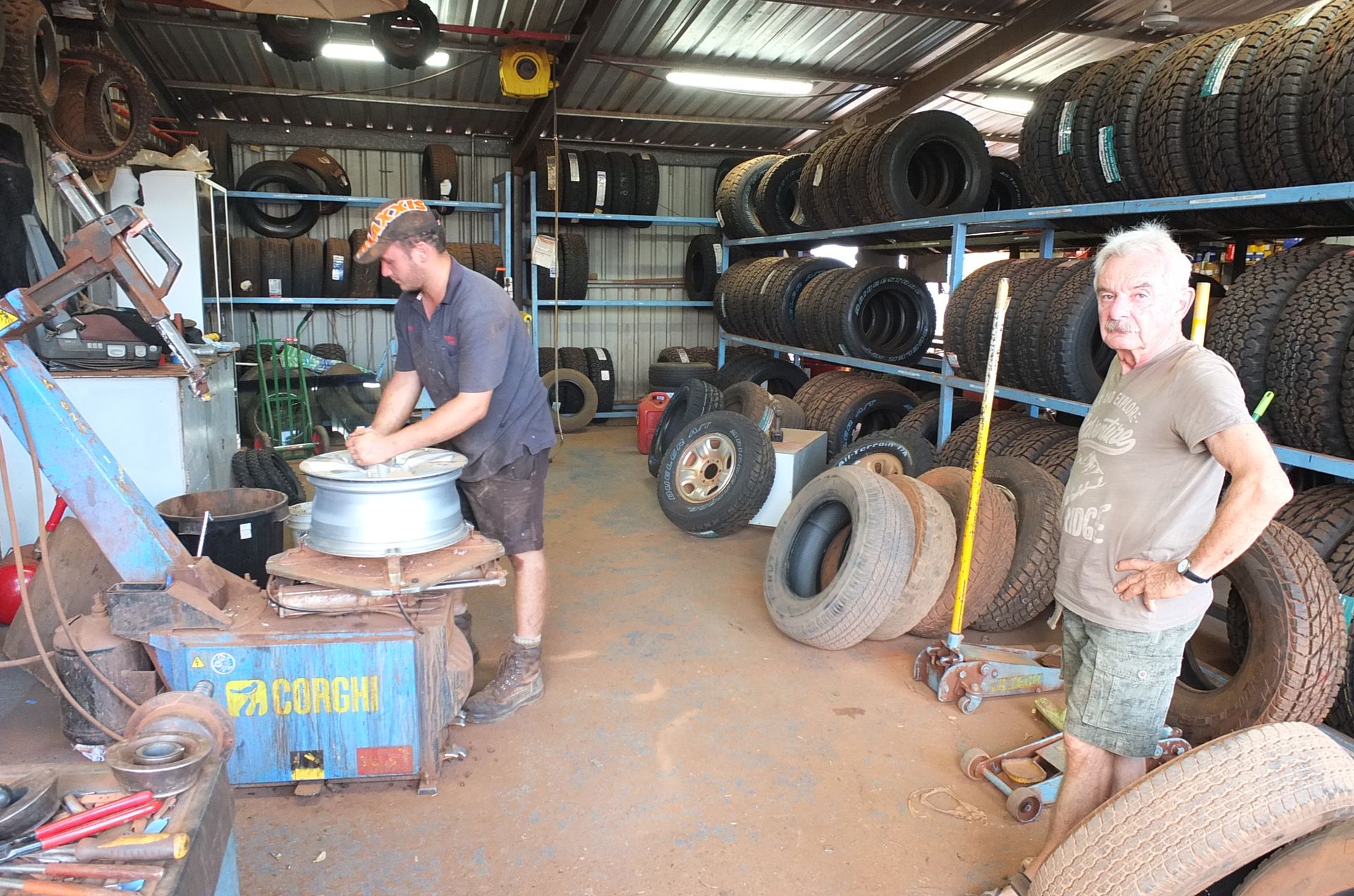
By 6:00 p.m. we arrive at the Karijini Eco Retreat after a ten-hour drive, where we will stay for the next 3 nights. But that's enough now! We are all a bit exhausted. Just unpack the car quickly and then off to dinner.
We spend the night in two spacious deluxe tents. They have full double beds and an attached sanitary area under the open sky. You can see the stars while showering. It is warm enough at night as well.

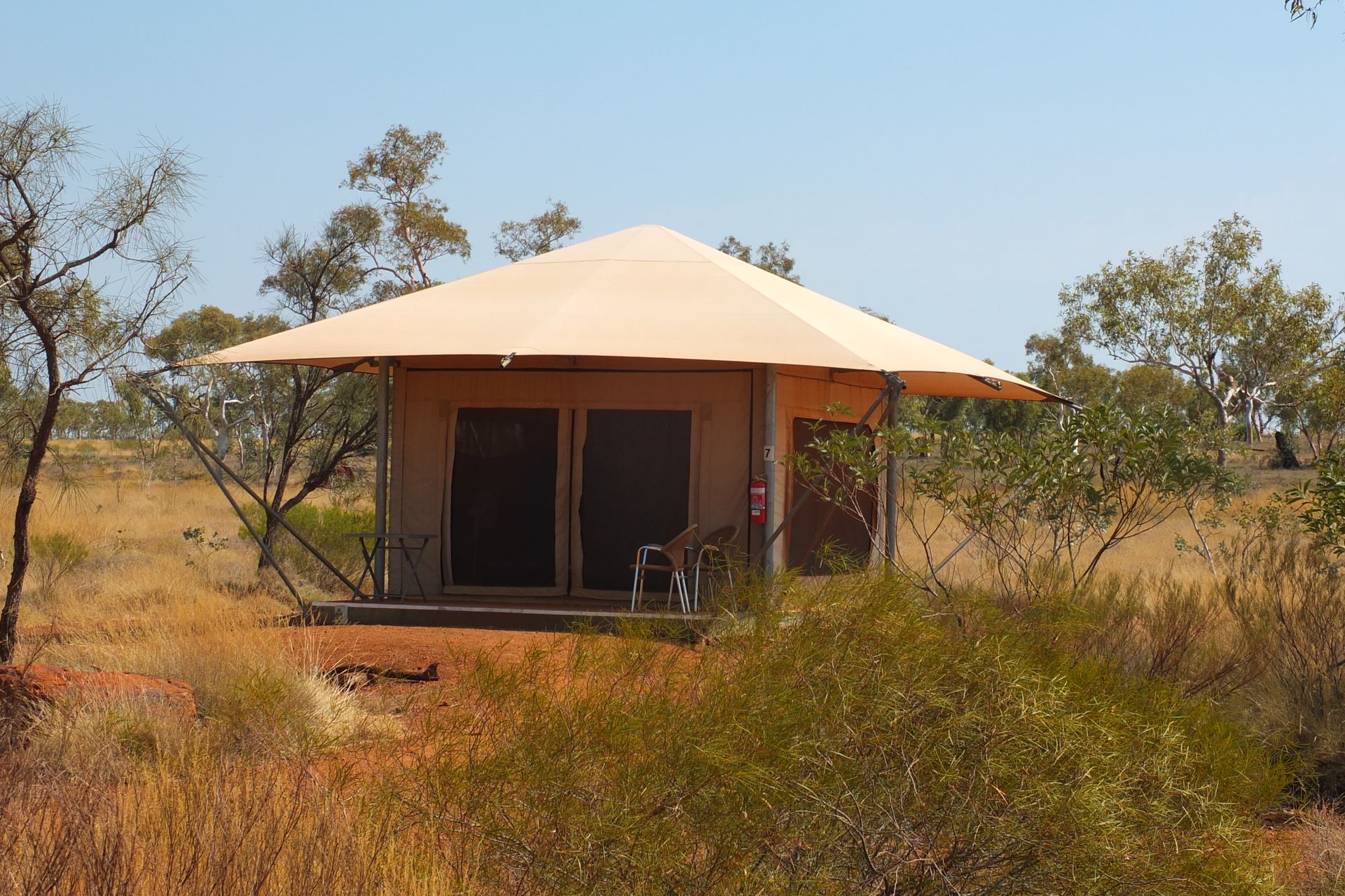

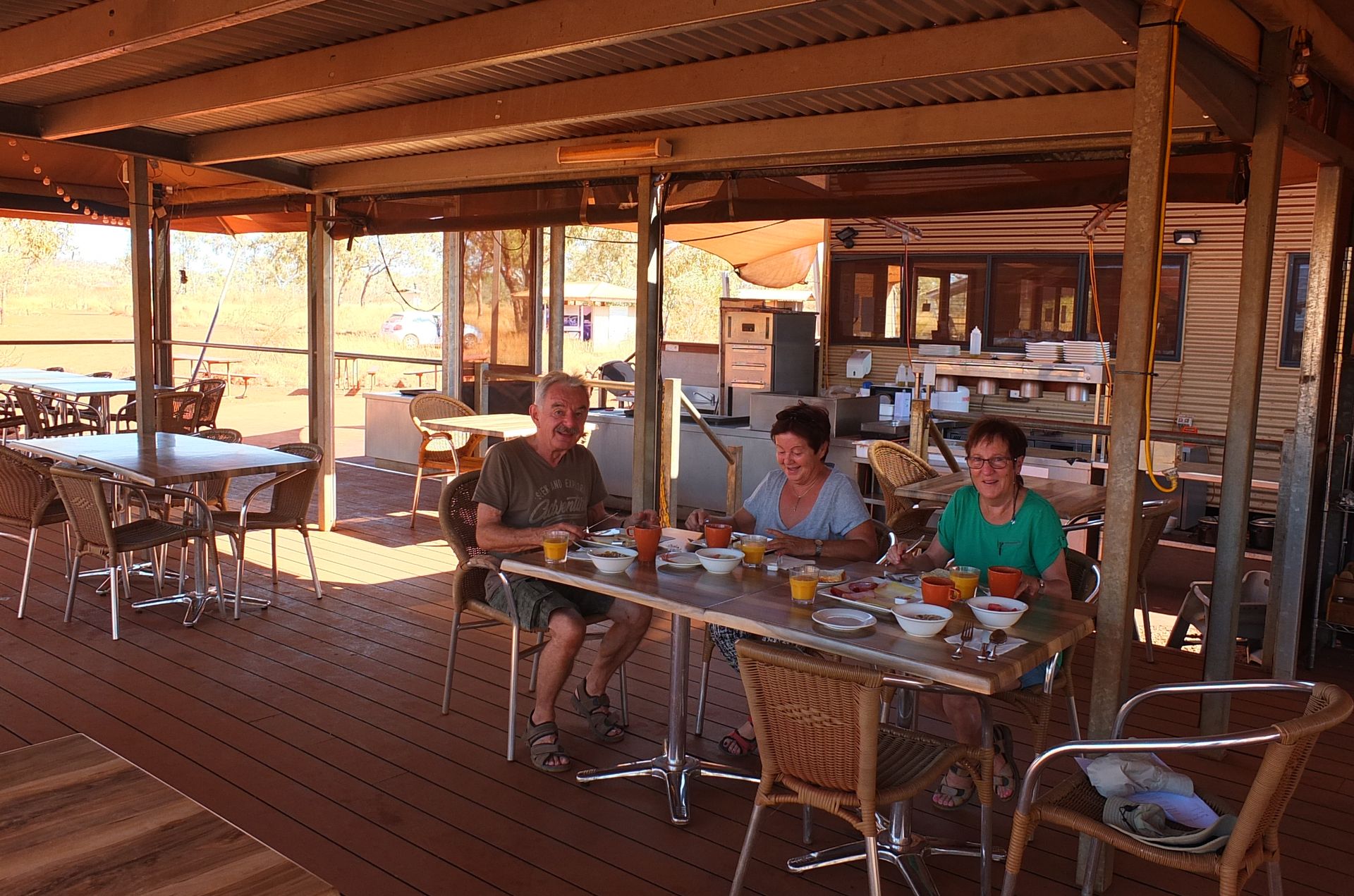
To conclude this exhausting day, we have red wine under the starry sky on our terrace in front of the tent.
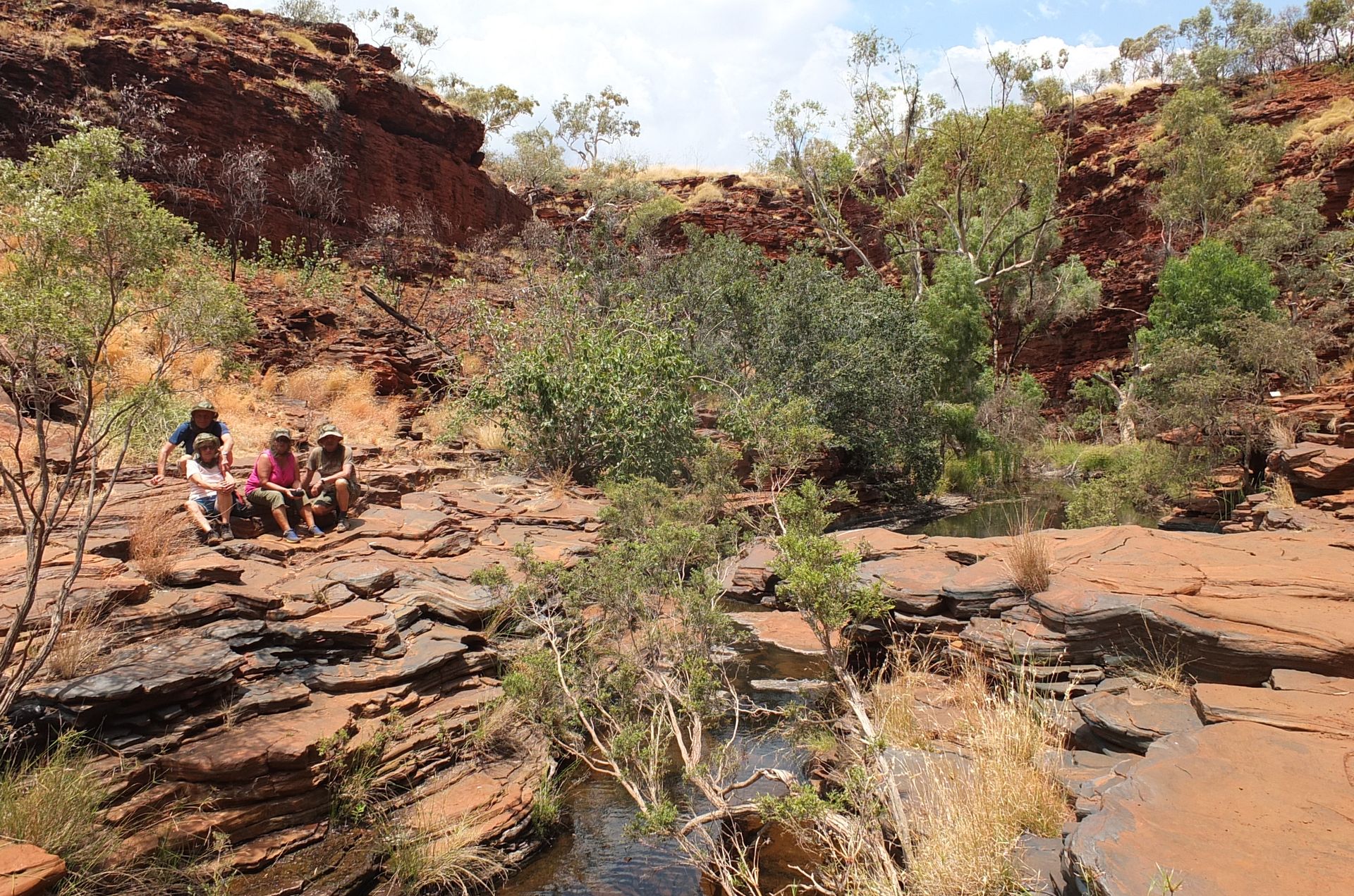
11/2 and 11/3/2018
The Karijini National Park, deep in the Outback of the Pilbara region, is the second largest in Western Australia. In its deep red gorges, the highly iron-rich rock has been impressively exposed since ancient times of Earth's history. At the bottom of these gorges, small waterways meander and form waterfalls and rock pools here and there, in which you can swim.
We use our two full days to explore the essential highlights of the park. These are the Weano and Dales Recreation Areas. In each of these two hiking areas, there are trails of various difficulty levels along the gorges and down into them to the pools. We have another 36°C +/- ...and therefore stick to the easier paths, which are still sweaty. From various lookouts, we have spectacular views into the gorges. Of course, Gerhard didn't miss the opportunity to swim in two of the rock pools.
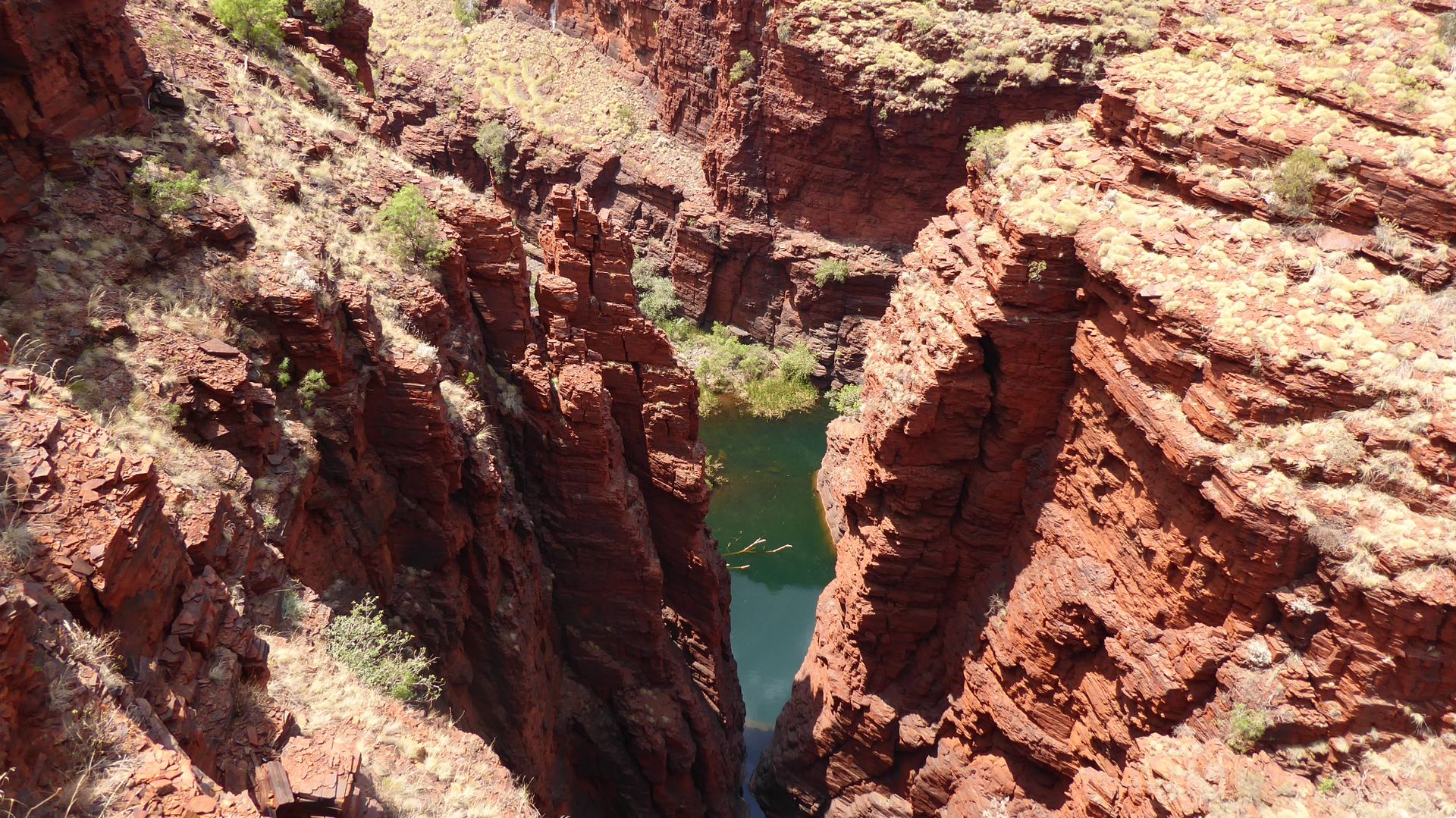

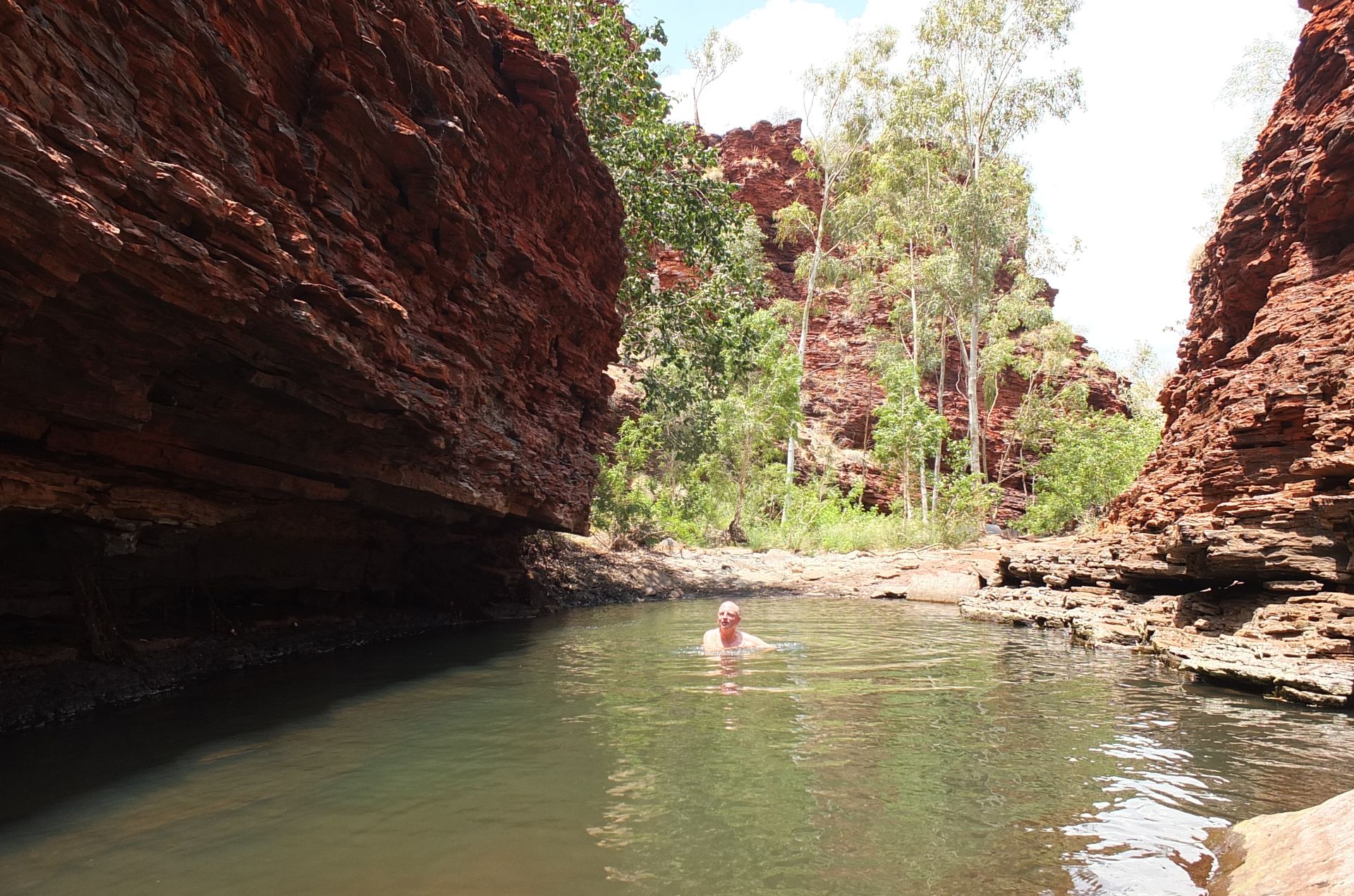
To access each of these hiking entrances, we have to drive a dusty dirt road with our car every time. The uplands of the Pilbara with its rusty red soil reminds us of the grass-tree savannas of southern Africa.
After these excursions, we look forward to a shower and self-made coffee at the camp. Unfortunately, we can only have it in the closed tent, because until sunset, the countless flies annoy us outside.
Our head nets are serving us well. After a good dinner at the restaurant, we sit comfortably in front of one of our tents with well-chilled wine and beer under a fantastic starry sky.
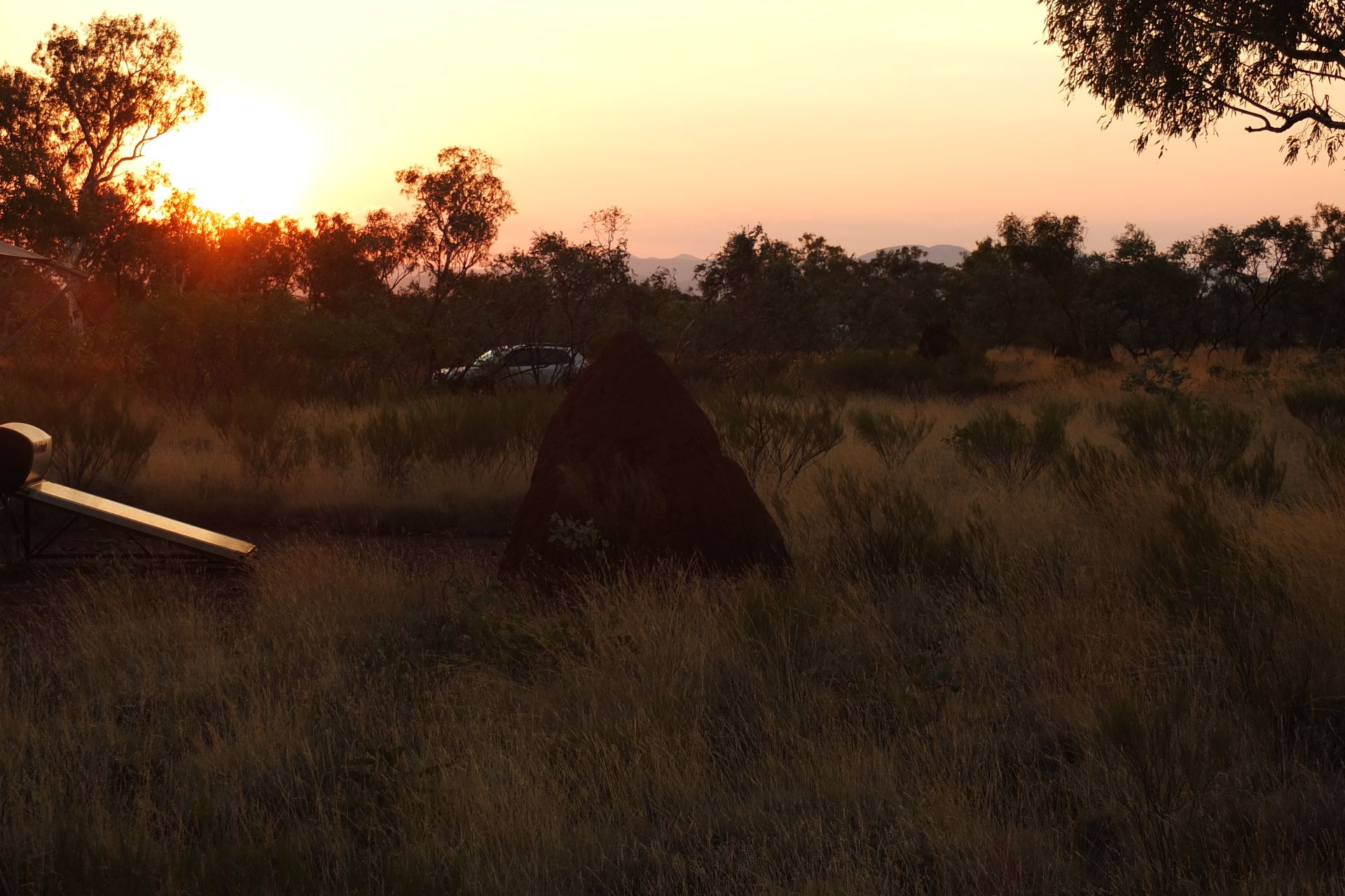
The national park is well visited. All age groups are represented from young to old.
------------------------------------------------------------------------------------------------
Dear readers of this blog,
we unfortunately have to reduce the effort for our travel report from now on! Due to infrequent availability of WLAN and slow upload speed, we are falling further and further behind with our reporting. So we will include fewer photos and may report less frequently. Please understand, thank you.
ન્યૂઝલેટર પર સબ્સ્ક્રાઇબ કરો
જવાબ આપો
